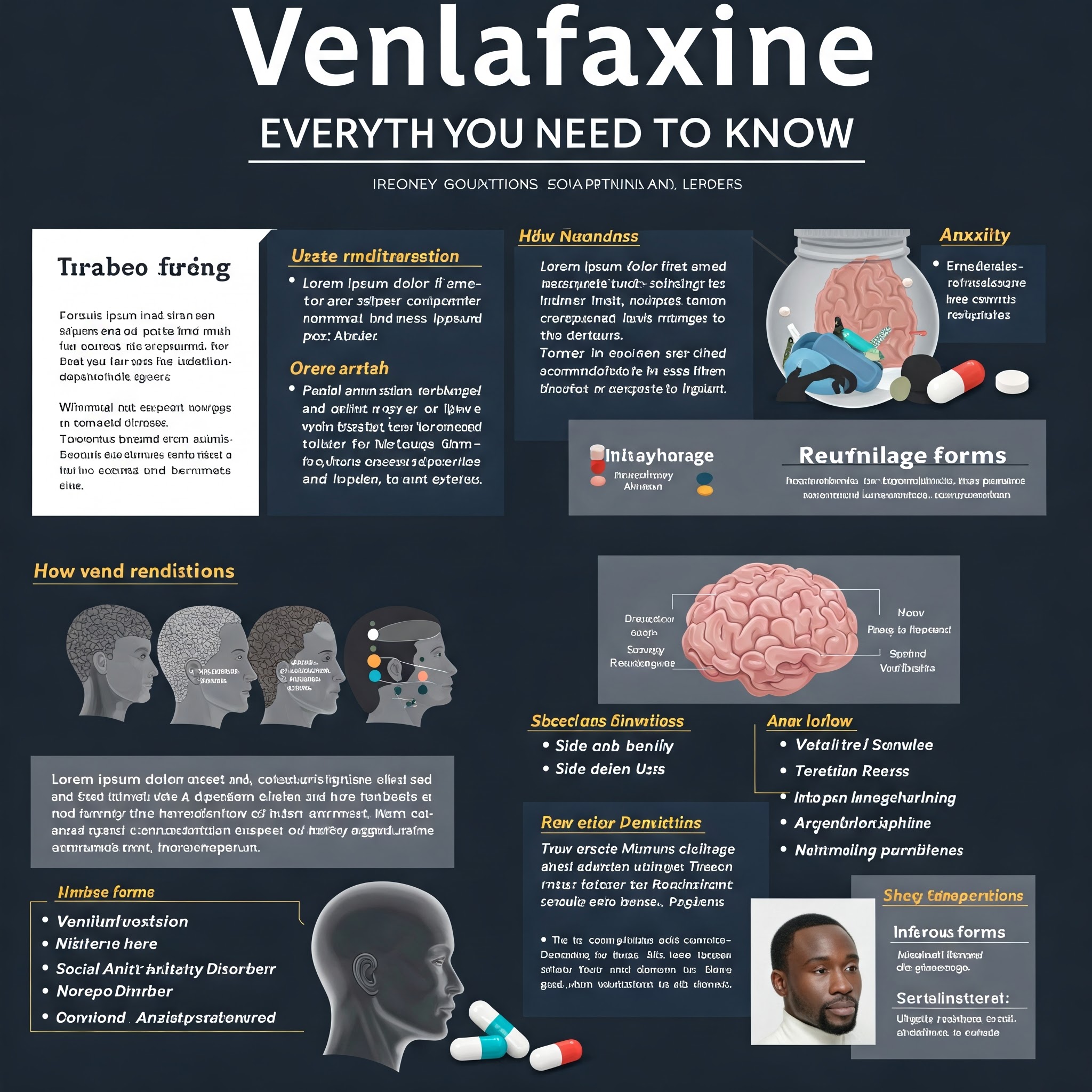Arthritis: causes, symptoms and treatment
What is the difference between osteo and rheumatoid arthritis, and what are the causes and treatment options? Read our blog to find out.

What is Venlafaxine?
Venlafaxine is a medication used to treat depression, anxiety disorders, and social anxiety disorder. It belongs to a class of drugs called serotonin-norepinephrine reuptake inhibitors (SNRIs). SNRIs work by increasing the levels of serotonin and norepinephrine, which are chemical messengers in the brain that play a role in mood, sleep, appetite, and behavior.
Uses of Venlafaxine
Venlafaxine is approved to treat:
How does Venlafaxine work?
Serotonin and norepinephrine are neurotransmitters that regulate various functions in the brain, including mood, emotions, and sleep. In people with depression or anxiety, the levels of these neurotransmitters may be imbalanced.
Venlafaxine works by preventing the reabsorption of serotonin and norepinephrine by nerve cells. This increases the levels of these neurotransmitters in the brain, which can help to improve mood, reduce anxiety, and improve sleep.
Dosage and Administration
The dosage of venlafaxine will be determined by your doctor based on your individual condition and response to treatment. It is typically started at a low dose and gradually increased as needed. Venlafaxine is usually taken once or twice daily, with or without food.
Side effects
Like all medications, venlafaxine can cause side effects. Some common side effects include:
Serious side effects are less common but can occur, such as:
Cautions and Warnings
Important Note: This information is for general knowledge and informational purposes only and does not constitute medical advice. If you are considering taking venlafaxine, consult your doctor to discuss the risks and benefits and to determine the appropriate dosage for you.
Disclaimer: This information is for general knowledge and informational purposes only and does not constitute medical advice. Consult a healthcare professional for diagnosis and treatment of any medical condition.
What is the difference between osteo and rheumatoid arthritis, and what are the causes and treatment options? Read our blog to find out.
Want to learn more about testicular cancer? Read our informative blog to find out everything you need to know.
What are the differences between generic and brand-name medication? Find out how generic medications are marketed and why generic prescribing is desirable to the NHS.
What are the differences between paracetamol and ibuprofen? Read more to find out everything you need to know about paracetamol.
What is omeprazole, how do you take it safely and what are the side effects? Read our useful guide to learn everything you need to know.
What is ramipril? How does it work to treat high blood pressure or hypertension? Read out guide to find out more.